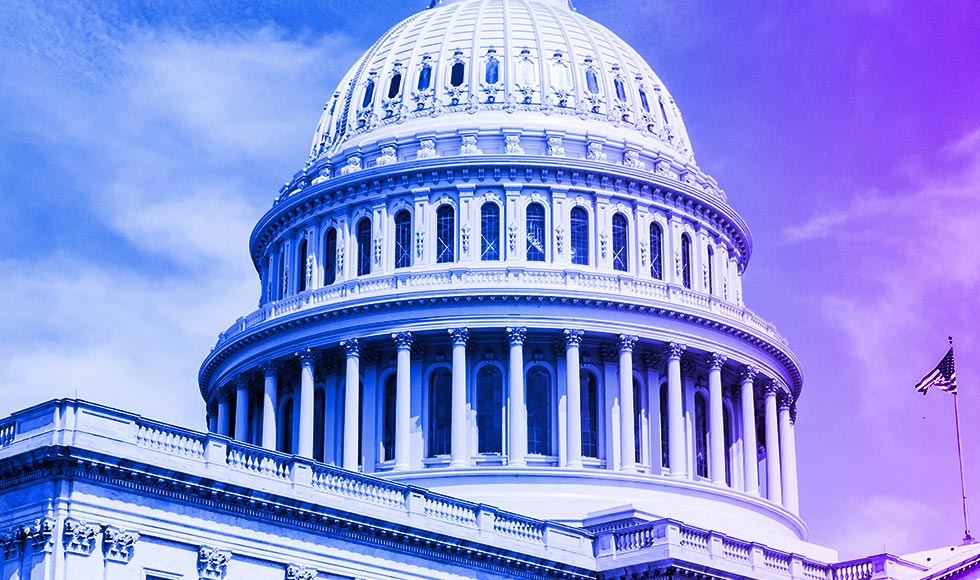Focus on small business is getting “big”
Focus on “consumer protection-like” concerns, consistent with fairness and equity

August 2022
Regulatory attentions on small businesses at both the federal and state levels are increasingly focused on “consumer protection-like” concerns, consistent with the regulators’ increasing focus on fairness and equity across all consumer touchpoints. The release of the long-anticipated Dodd-Frank-required “1071 data” collection rule will likely serve to reinforce the focus on small businesses as in addition to significant data collection, data quality, and regulatory reporting requirements and associated analytics (similar to mortgage lending reporting under the Home Mortgage Disclosure Act (HMDA)) it will subject small business lending to additional supervision under other historically “consumer” laws and regulations. Areas of potential risk might include: data (accuracy, privacy, security); KYC/AML; fair lending; UDAAP; disclosures; models; and technology (systems upgrades, constraints, reporting).
Regulatory developments in the following areas reinforce the heightened regulatory and supervisory focus on small business activity:
- Data collection and reporting requirements
- CRA amendments
- Expansion of UDAAP
- Disclosures for small business loans
- Special purpose credit programs
- Results of the PPP
1. Data Collection and Reporting
In its Spring 2022 Rulemaking Agenda, the CFPB estimates that it will issue a final “1071 data” rule in March 2023. The rule, which will implement changes made to the Equal Credit Opportunity Act (ECOA) by section 1071 of the Dodd-Frank Act, covers data collection for small business loans. (See KPMG Regulatory Alert) As proposed, the “1071 data” rule would:
- Define a small business as a business with $5 million or less in gross annual revenues in the previous fiscal year. (CFPB notes that it is separately seeking approval from the Small Business Administration (SBA) to use this definition rather than the size standards that the SBA has established.)
- Apply to “covered financial institutions,” defined as any financial institution (“partnership, company, corporation, association (incorporated or unincorporated), trust, estate, cooperative organization, or other entity that engages in any financial activity”) that satisfies the origination threshold, which is proposed to be a minimum of 25 “covered credit transactions” (transactions that meet the definition of business credit under existing Regulation B, such as loans, lines of credit, credit cards, and merchant cash advances) to small businesses within each of the preceding two years.
- Require collection of twenty-one data points, including information:
- Generated by the financial institutions (e.g., application date, action taken, amount approved of denied) and pricing information (e.g., interest rate, origination charges, annual charges)
- About the credit requested (e.g., credit type, credit purpose) and the applicant’s business (e.g., census tract, gross annual revenue, number of workers)
- About the demographics of the applicant’s primary owners (to include minority-owned business status, women-owned business status, ethnicity, race, and sex).
2. CRA Amendments
Select key provisions of the federal banking agencies’ (FRB, OCC, FDIC) proposed amendments to the Community Reinvestment Act (CRA) regulations specifically call out small businesses; these provisions would:
- Define community development activities to reflect an emphasis on activities that are responsive to community needs, especially the needs of small businesses, small farms, and low- and moderate-income individuals and communities.
- Require large banks to delineate “retail lending assessment areas” (RLAAs) in Metropolitan Statistical Areas (MSAs) or nonmetropolitan areas outside of (and in addition to) their “facility-based assessment areas” (FBAAs) where they have originated over 100 home mortgages or 250 small business loans.
- Consider all small business lending under the Retail Lending Test (as proposed).
- Transition the current CRA definitions of “small business” to the CFPB’s definition for section 1071 once that data is available. (See KPMG Regulatory Alert, here).
3. Expansion of UDAAP
In March 2022, the CFPB updated its supervisory examination procedures to focus attention on the potential for “discriminatory conduct that violates the federal prohibition against unfair practices” across consumer financial services products and services (inclusive of small business offerings) and throughout the product lifecycle. Examiners will require supervised companies to show their processes for assessing risks and discriminatory outcomes, including documentation of customer demographics and the impact of products and fees on different demographic groups. They will also look at how companies test and monitor their decision-making processes for discrimination under the ECOA as well as under the prohibitions against unfair, deceptive, and abusive acts or practices (UDAAP). (See KPMG Regulatory Alert here).
In separate actions:
- Multiple agencies such as the FDIC, OCC, and FTC have launched investigations into companies’ engagement in potentially unfair and deceptive sales and marketing practices targeting small business-related products and services.
- The California Department of Financial Protection and Innovation (DFPI) proposed to issue and enforce rules defining UDAAP to commercial financing, or financial products and services offered or provided to small businesses, nonprofits, and family farms.
4. Disclosures for small business loans
- In June 2022, California’s DFPI finalized a regulation that extends disclosure protections to California small businesses seeking commercial financing. Beginning December 9, 2022, providers of commercial financing will be required to disclose metrics such as the amount of funding the small business will receive, the Annual Percentage Rate calculated for the transaction, a payment amount, the term, details related to prepayment policies, and (for products without a monthly payment) an average monthly cost. The regulations are intended to assist small businesses in making more informed decisions about the potential costs of various commercial financing options. The DFPI suggests this regulation is “a major milestone in financial services oversight in California and a model for other states to follow.”
5. Special purpose credit programs
The CFPB issued an Advisory Opinion on special purpose credit programs designed and implemented by for-profit organizations to meet “special social needs” for certain classes of persons, such as minority- or woman-owned small business owners, minority residents of low-to-moderate income census tracts, residents of majority-Black census tracts, operators of small farms in rural counties, , consumers with limited English proficiency, or residents living on tribal lands. In particular, the advisory opinion clarifies the:
- Type of research and data that may be appropriate to determine a special purpose credit program is needed to benefit a certain class of persons “who would otherwise be denied credit or would receive it on less favorable terms.”
- Content for a written plan that establishes and administers the program under Regulation B.
6. Results of PPP
In July 2022, the Federal Reserve Bank of New York published a report analyzing whether changes to the Paycheck Protection Program (PPP) improved access to underserved firms (including veteran-, minority-, and women-owned businesses as well as very small businesses). The report is based on the Federal Reserve Bank’s 2021 small business credit survey. The report finds that the changes made to the PPP (including set asides, priority access periods) improved access for small businesses with no employees other than the owner, as well as encouraged more minority-owned firms to submit loan applications. However, the report notes that despite the changes made to the program, disparities in approval rates between white and minority-owned businesses did not improve.
Separately, in early August, the President signed H.R. 7352, the PPP and Bank Fraud Enforcement Harmonization Act of 2022, which establishes a ten-year statute of limitations for criminal charges and civil enforcement against borrowers who engaged in fraud with respect to a PPP loan. The legislation applies to PPP applications and forgiveness applications (including forgiveness applications that have been granted) that are suspected of being fraudulent. SBA states that the legislation “extends the runway” for investigations into fraudulent activity and “the prosecutions they support.”
Dive into our thinking:
Focus on small business is getting "big"
Download PDFGet the latest from KPMG Regulatory Insights
KPMG Regulatory Insights is the thought leader hub for timely insight on risk and regulatory developments.
Explore more

Points of View
Insights and analyses of emerging regulatory issues and their impact.

Regulatory Insights View
Series covering regulatory trends and emerging topics

Washington Report 360
A weekly newsletter covering legislative and regulatory developments affecting financial services firms—in 360 words or less.
Meet our team


